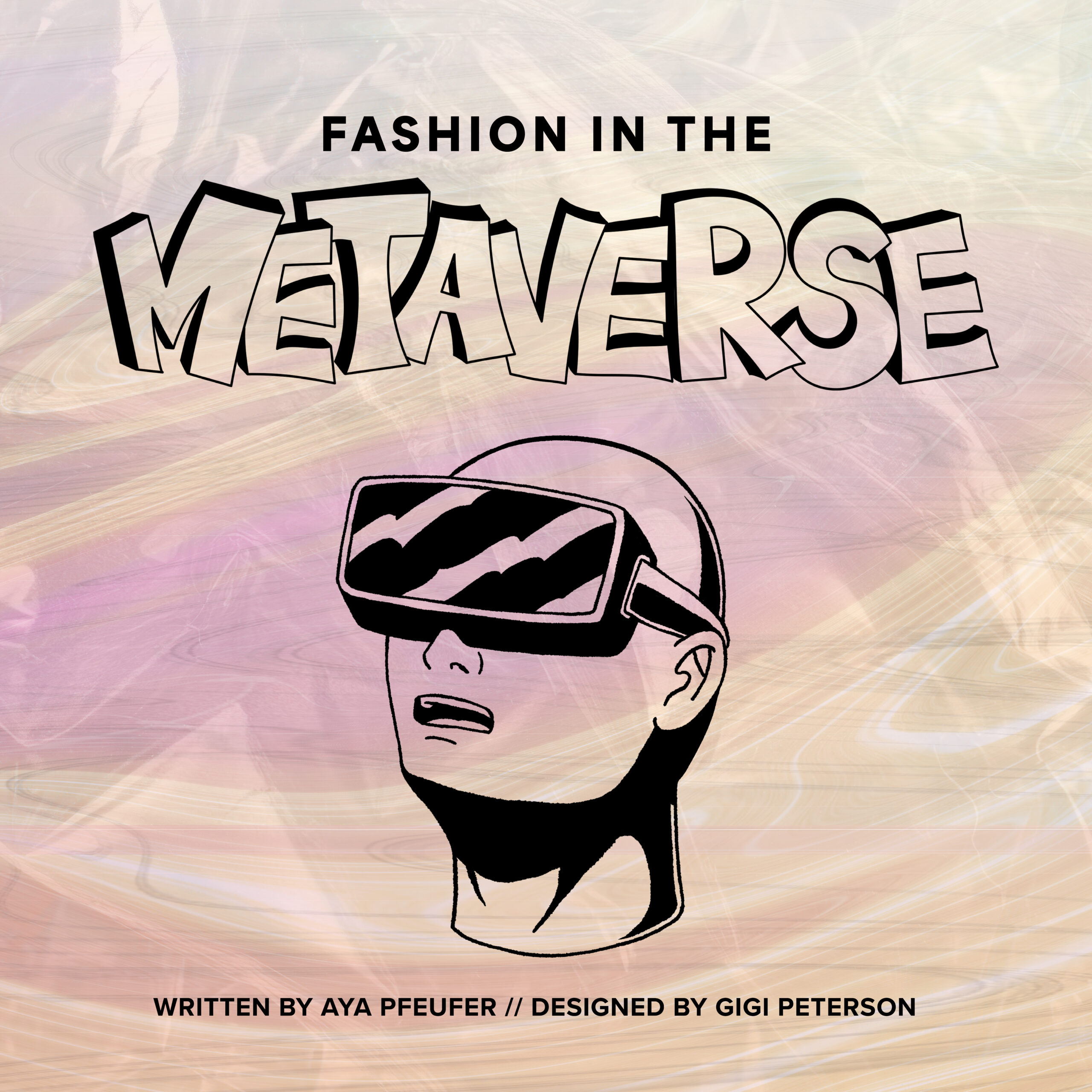
Photo Courtesy of SEIZER
The Metaverse is a virtual reality world that combines “physical reality, virtual reality (VR) and augmented reality (AR).” The Metaverse has been steadily growing in recent years, initially introduced in the gaming industry then spreading to other sectors like fashion and commerce.
In the 1970s, MIT developed the Aspen Movie Map, which allowed users to see Aspen, Colorado virtually; this milestone showed the possibilities of immersing people in digital realities. This allowed users to not only learn more about the city but also to have a more interactive experience with the world around them. The development of AI has advanced greatly throughout the decades. Before the fashion industry, it was already leaving a mark in other sectors such as design and marketing.
The rise of AI is transforming the world as we know it, and it has far reaching implications in all industries, one of which being fashion. The fashion industry has incorporated the Metaverse in many designs, including clothing, accessories and runway shows. Brands like Nike and Burberry use advanced technologies, such as VR, in their shops to enhance customer experience. This is done through trying on virtual clothing. Nike knows that many customers are shifting to digital and has incorporated blockchains and NFTs. Blockchains are digital ledgers that store information, and an NFT is a digital asset that represents an item.
Nike’s collection of NFT shoes was created simultaneously with RTFKT Studios and is called CryotoKicks Dunk Genesis. They are customizable to users’ needs, with a variety of surface patterns on the sneakers. Many Millennial and Gen Z buyers enjoy the metaverse experience as it allows for better self-expression with the ability to change their online game avatar and clothing. Nike also created “Nikeland” on Roblox, where online users can play games online while discovering Nike products.
Garden Gucci is another distinguished example of how major brands utilize the metaverse for an enhanced customer experience. The garden is an all-in-one “museum, boutique and restaurant.” Customers can browse the different fashion collections like the Gucci Garden Archetypes which focus on digital clothing and come in different colors and patterns that users can try on. The collection drew inspiration from Alessandro Michele’s work in fashion, the Italian creative director of Valentino. The virtual garden showcases Gucci’s creative and innovative designs and plans for the future.
The metaverse will continue to influence the fashion industry as technology evolves. Supply chain collaborations will help transform the way suppliers and retailers interact with each other, as there is an increased need for efficiency in meeting the demands of the consumers. New customers would have a more exciting experience shopping compared to the standard retail experience. Additionally, the metaverse has profited companies and driven sales up. Overall, the fashion industry is projected to become increasingly digitized in the future, because of market behavior, an increase in demand and the possibility of reducing the environmental footprint of clothing.